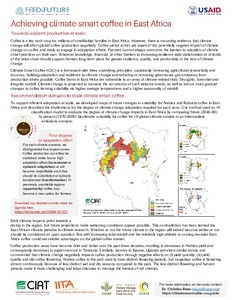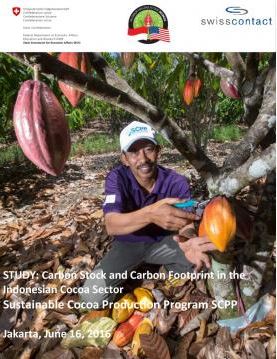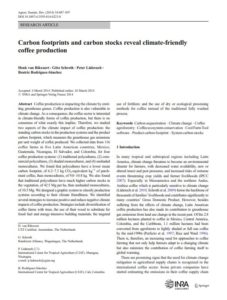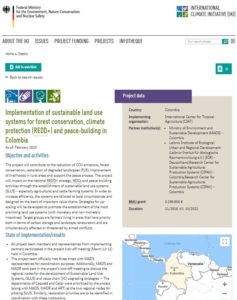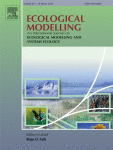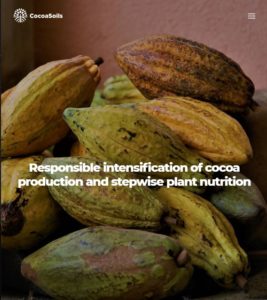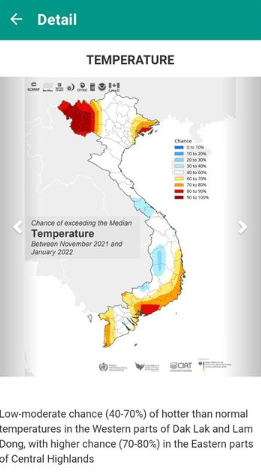Locally Relevant Action

Locally acceptable business cases for sustainable agricultural practices depend on the context of the farm and farmers. Awareness of risks, returns and uncertainties from the smallholder perspective enables supply chain improvements that are sustainable and create impact.
Adaptation packages of practices
For several regions, we developed lists of climate smart practices that have the potential to confront projected climatic change and improve the resilience at farm level. Because many solutions have a long lead time, the challenge is to use currently available means and prioritize them to take into account evolving climate change. Our sets of practices were developed through participatory workshops and validated through a review of scientific literature.
Carbon assessments in cocoa and coffee
Carbon assessments help to identify climate friendly practices in coffee and cocoa systems. In these studies, we evaluate the climate impact of different coffee and cocoa production systems around the world. Quantification of carbon stock and greenhouse gas (GHG) emissions under different shading levels and given different inputs intensities provide useful insight for producing commodities with low emissions intensity.
Coffee and cocoa crop models
Coffee and cocoa crop models are mathematical formalisms of the processes governing plant growth and yield formation as influenced by climate, soil and management. Model complexity is adapted to the objective, ranging from detailed models for testing current understanding of coffee and cocoa ecophysiology to simpler models used as decision support tools from plot to global scales.
Possible application: Possible applications: exploring current and future optimal shading level in agroforestry or informing on irrigation amount and timing.
Weather-responsive agricultural advisories
Key to coffee sustainability is weather-responsive agronomic advisories for Vietnam’s coffee farms. Through the WEFOCOS project on weather forecasting, seasonal climate forecasts based on downscaled climate models and data from sensors installed on select coffee farms are able to provide locally-relevant coffee management recommendations. This relates to transforming adaptation strategies to dynamic agricultural advisories connected to seasonal climate forecasts for specific locations. The seasonal forecasts are made available to farmers through a mobile application enabling farmers to make climatically informed decisions on irrigation, shade tree management, fertilization practice, pests & diseases management, among others. A similar approach would also benefit cocoa production.




